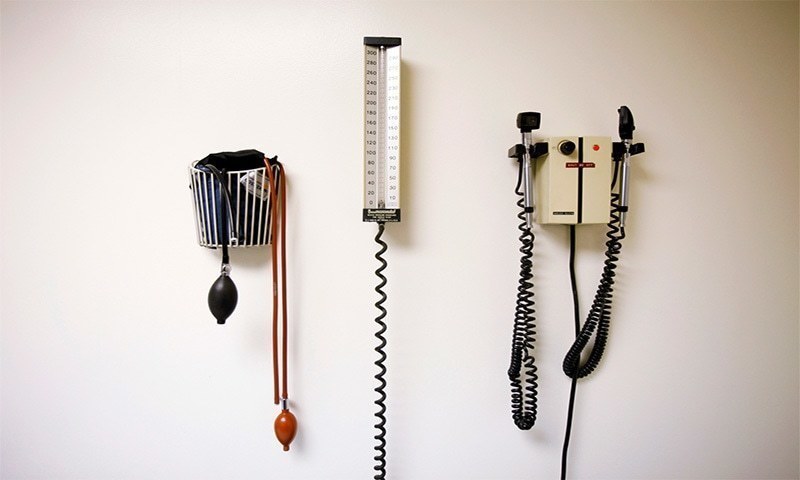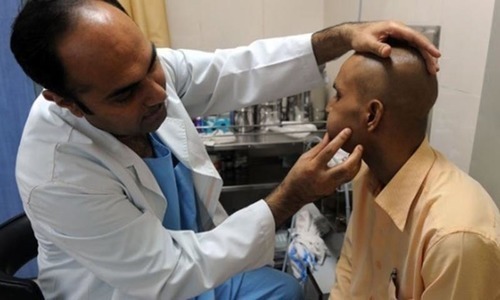ISLAMABAD: The increase in Islamabad’s population, compounded by the fact that not a single hospital has been constructed in the capital in three decades, has led to a continuous rise in the burden on hospitals in the city.
A recent statement from Polyclinic showed that 136,807 patients visited the hospital in July. This averages out to 5,066 patients every day, since there are 27 working days in that month.
According to Polyclinic’s media coordinator Dr Sharif Astori, 20,463 patients were brought to the hospital’s emergency department of which 4,473 were admitted because of the severity of their condition.
136,807 patients visited Polyclinc in July, hospital said in statement
“We have faced severe problems because of the rush of patients and the lack of beds. We get a record number of patients in the wards and blood banks, and people who visit the outpatient department or are admitted to the hospital are provided free medication and lab tests,” he added.
Polyclinic is the only public sector hospital in the capital that runs an evening shift, when it also receives thousands of patients every month.
Another doctor from the hospital who asked not to be named said that efforts have been made for more than a decade to extend the hospital, but they have been held back by bureaucratic hurdles and court decisions.
Polyclinic was established as a pioneer services hospital in 1966, when it was known as the Central Government Hospital and had just eight beds for emergency, surgery, medicine and gynaecology. The facility aimed to provide free, high quality healthcare services to federal government employees.
Today, the hospital has almost 550 beds dedicated to primary, secondary and tertiary curative care services for federal government employees.
The doctor said that it was decided in 2008 to build on a third of the park in front of the hospital, a total of 2.5 acres. The health ministry then realised that the park was named for Argentina, and the Argentine embassy was asked to approve the construction.
“The embassy told us that the extension could be built on park land but should not affect the identity of the park. There were some bureaucratic hurdles initially, and then some G-6 residents went to the Islamabad High Court (IHC) and obtained a stay against the construction. The court later directed not to build a hospital on the park’s land,” he said.
In June this year, IHC Chief Justice Athar Minallah announced a verdict in a pro bono petition, stating: “This court has no hesitation in declaring that the decision to convert the use and purpose of 2.5 acres of the Argentine Park for the extension of the hospital is ultra vires the Ordinance of 1960 (CDA Ordinance), The Act of 1997 and in blatant violation of the fundamental rights of the public guaranteed under the Constitution.”
The Polyclinic doctor said: “The Ministry of National Health Services (NHS) should look into the issue and ensure the building is constructed. According to the plan, a five-storey building would be constructed in the first phase, but its foundation, pillars and structures would be strong enough that another six storeys could be added in the future.”
“The PC-II for the Rs1 billion project was approved, and according to the building’s design there would be two basements and spacious parking. The old Polyclinic building would be rebuilt in phase two.
“The ministry should play its role to construct the building either on park land, or on land allocated in some other part of the sector,” he said.
NHS ministry media coordinator Sajid Shah said that Special Assistant to the Prime Minister Dr Zafar Mirza was very serious about building new hospitals in the capital.
“The issue will be conveyed to him and he will hopefully play his role for the construction of the hospital’s extension,” he said.
Published in Dawn, August 15th, 2019













































